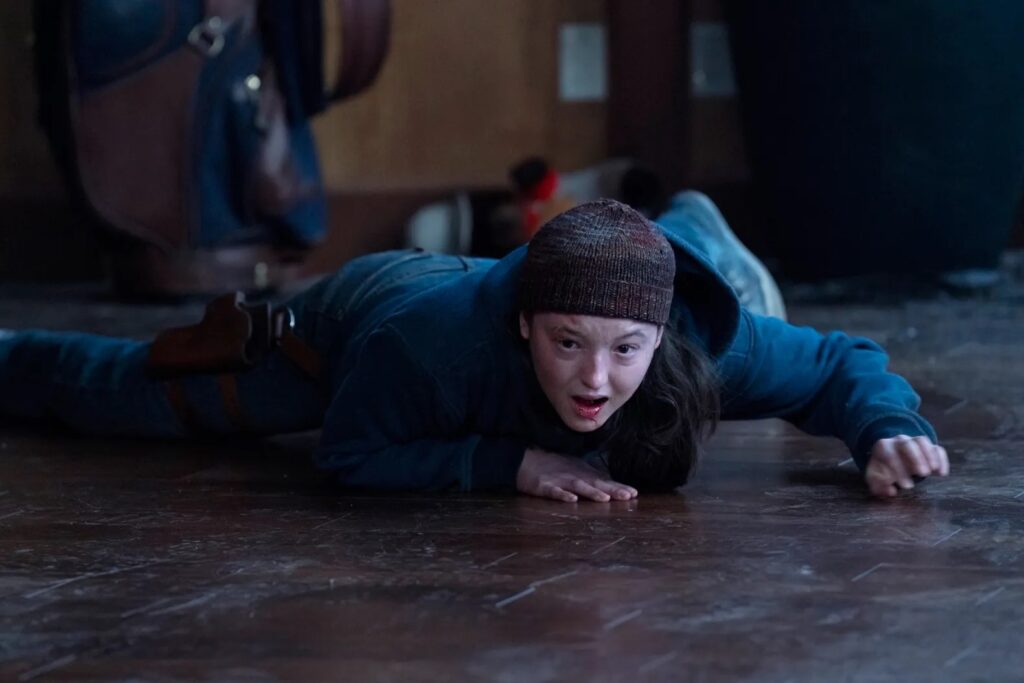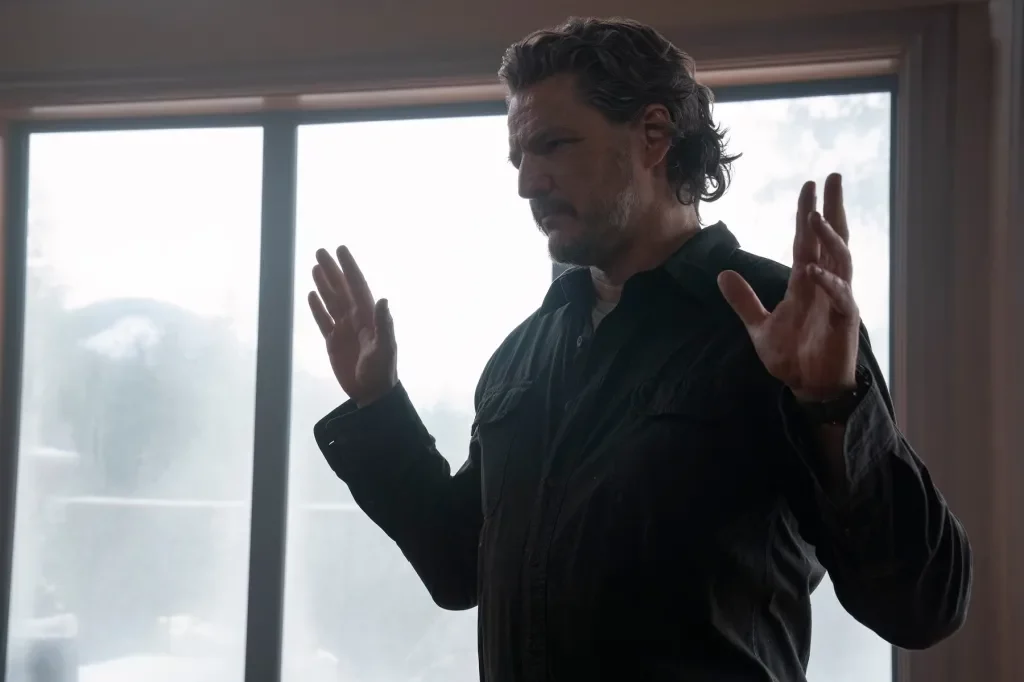Where does ‘The Last of Us’ go from here?
Some fans are in revolt after the tragic events of Episode 2. Only time will tell whether the series will survive the aftermath

This post contains spoilers for this week’s episode of The Last of Us, which is now streaming on Max.
Ellie and Joel. Joel and Ellie. That was the pairing that made the first season of The Last of Us so special. The combination of these two damaged souls — her needing a parental figure, him needing a surrogate daughter, both afraid to acknowledge this fact to themselves or each other — coupled with spectacular performances by Bella Ramsey and Pedro Pascal, elevated the HBO drama above the usual tropes of a post-apocalyptic survival story. It didn’t exactly make the series into a beacon of hopefulness — the first season, after all, ended with Joel massacring a hospital full of people who were trying to synthesize a cure for the plague that had infected most of humanity, all because he couldn’t abide the fact that Ellie would have to die in the process — but there was enough in their bond, and in the interplay between the two actors, to make it a show beloved even by people who generally don’t have patience for zombies (or zombie-like creatures) running amok in a ruined world. So long as there were Ellie and Joel, some part of it all would be OK, it seemed.
So now what?
Last night’s episode ended in horrifying fashion. Abby (Kaitlyn Dever), whose doctor father was the first person Joel killed on his rampage in the Season One finale, tracked Joel down with the help of her militia friends, and savagely beat him with a golf club. Then, after Ellie showed up in a futile attempt to save him, Abby fatally stabbed Joel in the neck with the shaft of the club she had broken against his body.

It is a plot development well known — for good and for ill — to the many people who played The Last of Us Part II game, and who have spent the past few years waiting to see when, how, or even if the TV show dealt with it. Showrunners Neil Druckmann (who co-created the game) and Craig Mazin could have put this off until much later in this batch of seven episodes, perhaps by spending more time in the long gap between seasons, or simply by dealing more with life in Jackson, and various non-Abby threats facing the insulated city. Or Mazin, the veteran screenwriter who was not involved in the game, and thus isn’t as invested in it, could have looked at how well Pascal and Ramsey worked together in the first season — and how much audiences responded to them — and tried to convince Druckmann to take the show in a different direction.
Instead, they stuck with the source material, having Joel’s death happen at roughly the same point in this season where it happens in the game. (Though the attack on Jackson by a horde of infected is an invention of the show’s.) No delaying, no denying — just cold, cruel, death.
And at least some non-gamer members of the audience are saying that Joel’s death has made it their last episode of The Last of Us.
It will be quite a while until we see whether this twist has any impact on the series’ ratings, whether on HBO or on Max. The Last of Us Part II has to date sold less well than the original game, but it’s also only been available for five years, whereas the original came out in 2013. Many gamers were upset with this development, some because they felt the core of the game was Joel’s relationship with Ellie, some because they didn’t appreciate the straight male hero being killed off while the queer female antiheroine stuck around. Take a guess which group was responsible for besieging Laura Bailey, who played Abby in the game, with death threats. On Sunday night, Pedro Pascal went out of his way to try to shield Kaitlyn Dever from a similar fate, by putting this affectionate post on his Instagram:
Anecdotally, my social media mentions since last night have primarily been a mix of two responses: 1) gamers impressed that the show not only went through with it, but didn’t stall in order to maximize the amount of Pedro Pascal time it had; and 2) non-gamers who either aren’t sure they want to continue watching, or have outright said that they’re done. Some were watching primarily for that relationship, despite not being crazy about the genre in general. Others suggested that the world feels so dark these days that losing Joel — and having him die in such sadistic fashion (even if the majority of the torture occurred off-camera) — is more than they want out of their fiction right now.
I’ve seen the entire season, and in my review, I did my best to write around Joel’s death while talking about my own relative dissatisfaction with what the show becomes without him. There’s a lot of excellent material on the way. Bella Ramsey is a superb actor. Ellie’s relationships with characters like Dina (Isabela Merced), Tommy (Gabriel Luna), and Jesse (Young Mazino) are compelling in different ways, particularly whenever she’s paired with Dina. Still, they’re not Joel, and when there are later flashbacks featuring Joel, the chemistry between Ramsey and Pascal blows every other relationship off the screen. But this season only covers half of the story of the second game, so I can only speak to how well the show plays without Joel in the short term, rather than whether the ultimate payoff is worth his loss.
This is also an unusual circumstance, in that it’s rare to have a show write out its clear lead or co-lead character this early in the run, especially by choice. David Caruso infamously quit NYPD Blue after the first season to pursue movie stardom that never came; that show did fine without him, in part because replacement Jimmy Smits was so good, but mainly because Caruso had by that point already been usurped in fans’ hearts by co-star Dennis Franz. Game of Thrones killed off Ned Stark late in its first season — even earlier than Joel — which was also a case of following the source material. But even though Sean Bean was the cast’s biggest star at the time(*), and even though Ned was our initial point of view character, by the time he lost his head, the narrative had become so sprawling that killing him wasn’t as fundamental a change to that show as killing off one half of what had largely been a two-character piece until now.
(*) Pascal is at the moment perhaps the most famous GoT alum, after playing a character who, like Ned, was introduced and killed off in the same season.
In general, when hit shows have had to replace a lead or co-lead — whether because the actor wanted to leave or because the creative team decided to do it — they’ve remained hits, unless it’s so many years into their runs that some audience attrition was inevitable anyway. (See The Office without Steve Carell, or The X-Files without David Duchovny.) Maybe the most obvious instance of a character death triggering a mass fan exodus was The O.C., whose viewership plummeted after the producers (in a decision they later regretted) decided to kill off Mischa Barton’s Marissa Cooper after the third season. And even there, the ratings had already dipped substantially from their first-season peak.
So believe The Last of Us will scare away most of its audience when you see it happen. But you also can’t blame fans from not only feeling shock at Joel’s death, but wondering whether the show they loved is still that show without him.
